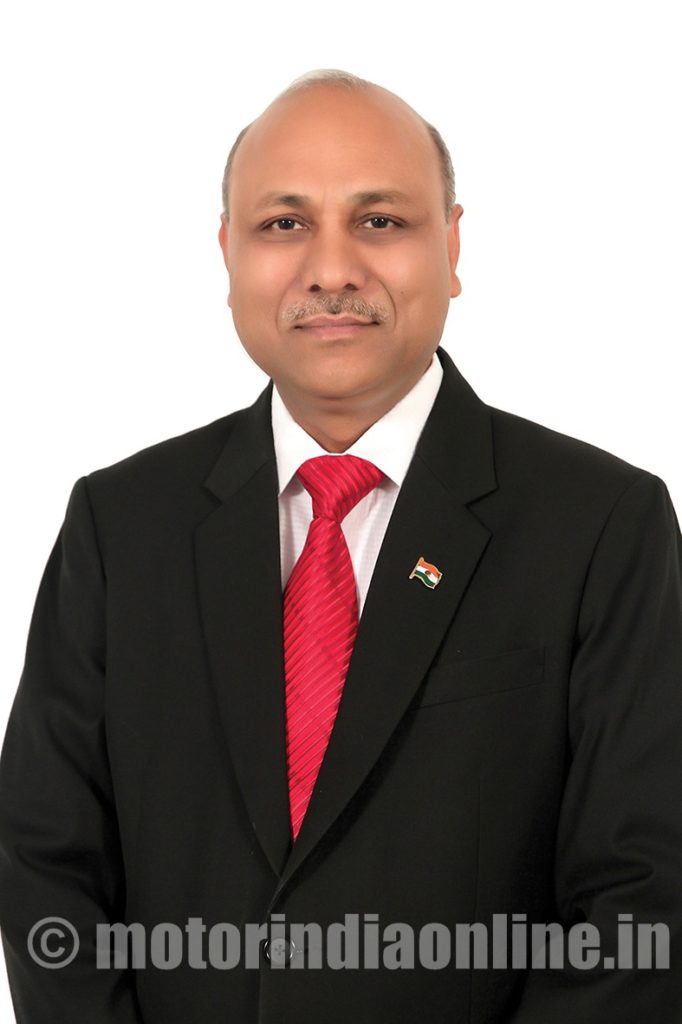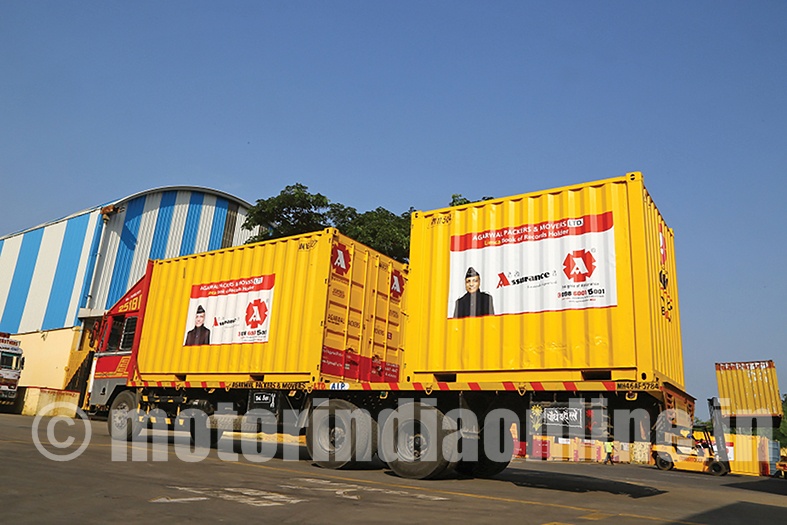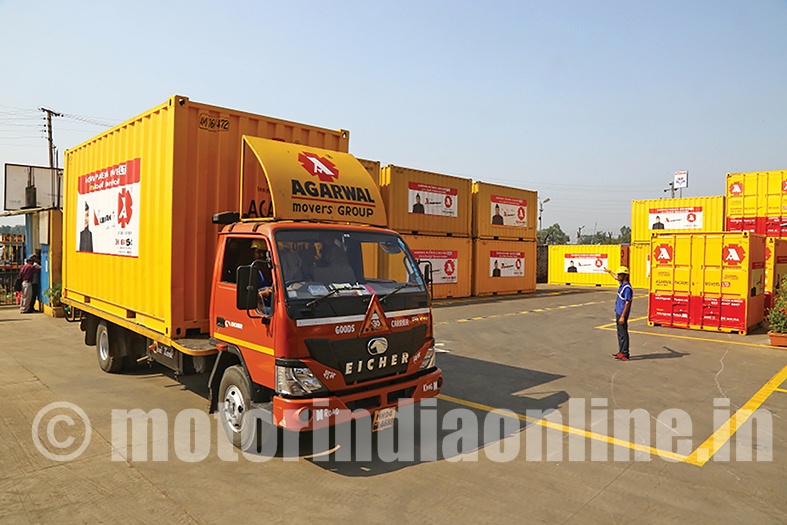10-15% business boost expected
After making its name synonymous with the relocation industry in India, Agarwal Packers and Movers Ltd. (APML) is now working on innovative and out-of-the-box solutions to serve its customers at its best. The home-grown logistics and transportation major, with a fleet of over 1,000 self-owned vehicles and 100+ branch offices that serve more than 1,300+ locations across the country, has also rolled out “Trucking Cubes” for more convenience. Interacting recently with Mr. Ramesh Agarwal, Founder and CMD of the company, MOTORINDIA has learnt that GST will benefit the company on multiple counts and APML will be able to enhance its business by 10-15% in due course.

What kind of new initiatives have you taken to streamline your business?
APML has always been doing its business innovatively and the latest being ‘Chalak Chain System’ (CCS) which was introduced on 6th September 2016, our company’s Foundation Day. By ‘chalaks’ we mean drivers who actually move the trucking system. The idea was mooted four years back and now we have successfully induced in our system. There are multiple benefits derived out of CCS.
Firstly, this model is commercially efficacious as we can now run the vehicle upto 800 km instead of 400 km which is the standard practice in all developed countries. This system works on a simple rule of Chalak (driver) change after a certain point say 250 km or five hours which. For example if drivers starts his journey from Delhi to Mumbai, till the time he reaches Jaipur, it is approx. 5 hours of drive, here he is relieved from the journey and goes to a rest-room at the hub, from here another local driver is given the charge till the next pit stop. This process goes on until the consignment reaches the final destination, i.e., Mumbai.
Through this system our drivers have benefited immensely as they come back to home the same day after driving back the vehicle with the consignment coming from Mumbai to Delhi. This is more initiative taken by our company for the betterment of the drivers after the introduction of the ‘Driver Nidra daan Kendra’ at Dudhu (near Jaipur – NH-8) which we had launched a few years back and is open for all the truck drivers of India. The main motive is to provide job satisfaction to the drivers and to make them feel fit and happy.
Secondly, due to the introduction of CCS the transit time has reduced drastically thereby benefiting the end customer.
With the proposed introduction of GST, do you foresee some changes in your business model?
Union Government through the GST Council has notified the transporters to understand the concept of GST and its functioning that is meant for transporters, specific routes are earmarked for transporters and nobody is allowed to divert from any route. Even though a transporter / driver has a UP permit, he cannot ply through Meerut if the same is not mentioned in the scheduled route, and if he does so, it becomes a monotonous process. If he wishes to divert he can do that after submitting an application and getting it approved under the Sales Tax Act which takes a couple of days, sometimes due to some unavoidable circumstances drivers ply through different routes for which heavy penalties are imposed on the transporters / drivers, and hence once GST is implemented this will be a binding done away with and route diversion will not be a problem for us.
Another important aspect is that there will be an acceptance to a “Virtual Transportation” in the logistics sector. It works in a simple way – once you load your consignment in our “Trucking Cube”, you don’t really need to have a warehouse to stock the goods. It will be pre-determined as to where and when the number of cubes needs to be dispatched, only thing is to be checked and confirmed before the shipment, i.e., to make an invoice.
Have you worked out any kind of a chart which will benefit the road transport sector before and after GST?
We have already shared the details of hurdles (six hurdles) to the Transport Ministry that could be faced by the transporters through All India Transporters Welfare Association (AITWA) which will be considered by the Government once GST is implemented.
How is Agarwal Packers going to benefit with the implementation of GST?
We are going to benefit on multiple counts with the implementation of GST.
Firstly transit time (time taken to drive at destination) will be reduced by 30%. For example six days transit, will then take only four days which means the customer will save two days, as there will be no check-posts, octroi-nakas, etc., during shipment of goods, which also means there will be no stoppage of vehicles and no delay as well.
Secondly, more knowledgeable manpower will be required to deal with sales tax, routine cases, etc., and I am sure with a dedicated team it would be done away with. To put it the other way, it will minimize our paperwork like transit pass and litigation expenditure, which will ensure on time qualitatively. Most importantly, there will be a free movement of goods across the country. Unlike now where the destination is assigned on specific routes, APML could take the shortest possible route which is free of any traffic gridlock. Furthermore, drivers who are harassed on the check-post will not be facing any difficulties. Once this gets over, more people will be motivated to become drivers and join the workforce, as in India there is really a scarcity of drivers and with GST’s implementation there will be a big difference.
Assuming that you are clocking a Rs. 5,000-crore turnover this year, what will be the incremental growth in your revenues if GST is implemented?
Although we are posting a healthy double-digit growth year after year, Post-GST we should be comfortably achieving Rs. 10-15% growth over and above our projected turnover.

